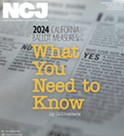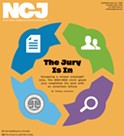[
{
"name": "Top Stories Video Pair",
"insertPoint": "7",
"component": "17087298",
"parentWrapperClass": "fdn-ads-inline-content-block",
"requiredCountToDisplay": "1"
}
]
The human voice is a most spiritual and mysterious force. The first instrument of expression in the history of our species has always been the means of our deepest forms of communication; be it with each other, between a human and the Earth, or through a song which is sung as a message to the gods.
On a musical level, the power of a beautifully realized harmony and the strength that lies in the manipulation of our most natural and unique instrument is undeniable. Always moving, it is at times overwhelming.
The five ladies of AkaBella are experienced in the exploitation of this truth: that the human voice just might be the most powerful instrument on the planet; as is evidenced in the recordings presented on their debut EP, The Beltane Sessions.
The album was recorded over a two-night span at the Arcata Playhouse in late April of 2009 (hence the reference to the “Beltane,” an ancient Gaelic festival observed at the beginning of May). The girls performed the same songs both nights to a hushed (though enraptured) audience, with slight variances, and later chose the best renditions for inclusion. The result is a musical joyride through the ages; a cross-cultural journey of spiritual and literal expression presented through the purity of five female voices in harmony.
Evidenced within is each of the girls’ personal connections with various traditional and contemporary songs from many different cultures, many of them sacred, but a few of them playful, somber, even lustful. There is a type of spirituality evident in this music that unfortunately seems to be lost in most contemporary popular music. All comparisons to traditional a capella spiritual singing aside, the girls’ respect for the sacred essence within the context of these songs is clear.
The AkaBella girls are very serious about their music and they have all had individual experiences in studying music for different lengths of time, through different focuses and with different degrees of intensity.
Verena Reece, for instance, has probably had the most experience studying certain types of traditional African music, including traditional Zimbabwean and West African music, and is therefore a crucial element to the presentation of tracks such as “Monono/Bukatiende," “Yemaya” and “Wolambo."
“Wolambo” is an homage to the keepers of the musical flame of ancient West African musical traditions known as djalis, one of whom has a close connection to much of the West African music that has been played in this town over the last 10 years.
While most of the songs included on this disk are the girls’ arrangements of traditional songs from around the world, there are two original tracks: Nola Pierce’s “Blackberry Wine” and Melody Walker’s “12-Bella,” the latter of which was the first original sung by the group and a song that has become a sort of theme song for the ladies who conceived it.
“12-Bella” speaks of the rhythms of the universe and the philosophy of the inevitable relationship of “3” against “4." Here this idea is expressed through the poly-rhythmic dimensions of a 12/8 time signature and the imagery of the breakdown of all things “12” in our world, including the relationship of “three months to each season/four seasons in a year/how loud does the goddess have to whisper in your ear?” and their own analogy of the dichotomy of female/male relations. Profound stuff. Not to mention the harmonies and their execution on this track are spine-chillingly deep and powerful.
While there are many tracks that borrow from the rich heritage of the African Diaspora, a few trace the eastern European tradition (with harmonies so rich and complex that there is not room here to analyze them) and there is even a traditional Japanese song included on the album, as well as a couple of traditional American gospel tunes.
Lorenza Simmons brings us a chilling version of “Soon I Will Be Done,” a lament about the end of one’s life and the string of endless troubles that come with it, and the ascent into the after-life. It's hard to listen to this track with dry eyes, especially when it comes to Nola’s verse, to which she brings a bluesy soulfulness that reaches right to the heart of the song and strips it down painfully yet blissfully. When it comes to singing the blues, there are many things that you can’t learn from studying traditional vocal techniques. This is to be expected in a music that is often sung by common people with no musical training, and Nola has certainly “unlearned” herself some deep bluesy rootsiness that never fails to leave me dripping with musical ecstasy.
At the end of the album Nola leaves us with a musical treat too sweet to spoil by telling about it here, suffice it to say that it is a classic tune by one of the most popular singers of all time, which has of course been stripped down and re-imagined through the potent vision of these five gifted women.
These goddesses are whispering, and I’m listening.
































